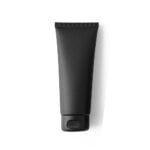
In today’s article, we discuss a common misunderstanding surrounding the haircare practices of black individuals. It is essential to understand that black people do not wash their hair every day as it can strip away the natural oils that are vital for hair health. Recognizing this fact, we explore various methods and products that can be employed to promote faster and longer growth of African ethnic hair while ensuring its overall well-being. So, if you’re curious about how to take care of your hair in the best possible way, let’s delve into this enlightening discussion together!
Understanding Black Hair
Black hair is a unique and beautiful aspect of African ethnic culture. Its texture and structure differ from other hair types, making it essential to understand how to care for it properly. By understanding the unique characteristics of black hair, we can embrace its natural beauty and effectively maintain its health.
The unique texture and structure of black hair
Black hair typically has a tightly coiled or curly texture. This unique structure contributes to its strength and versatility. The curl pattern of black hair can range from loose waves to tightly coiled patterns known as Type 4 hair. Understanding these variations in texture is crucial when it comes to selecting appropriate hair care methods and products.
Historical and cultural significance of black hair care
Black hair care has a rich history and cultural significance within African ethnic communities. Throughout history, hairstyles served as markers of identity, social standing, and cultural heritage. From intricate braids of different African tribes to the iconic afros of the Black Power movement, black hair has always been a symbol of pride and self-expression. It is important to appreciate and respect the historical and cultural significance of black hair care practices.
Why Black People Don’t Wash Their Hair Every Day
One common misconception about black hair care is the belief that black people should wash their hair every day. However, this is not the case. Washing black hair too frequently can strip away the natural oils that are essential for its health and vitality. Understanding the role of natural oils and the damage that frequent washing can cause is crucial in maintaining the health of black hair.
The role of natural oils in protecting and nourishing black hair
Black hair naturally produces less oil than other hair types due to its unique structure. These natural oils, such as sebum, help moisturize and protect the hair and scalp. Repeated washing can strip away these oils, leading to dryness and potential damage. It is important to strike a balance between cleanliness and retaining the natural oils that are essential for black hair health.
The damage of frequent hair washing to black hair
Frequent washing can lead to dryness, brittleness, and breakage in black hair. The harsh sulfates often found in conventional shampoos can increase the risk of moisture loss, leaving the hair vulnerable to damage. Black hair requires a more gentle approach to washing, focusing on preserving its natural oils while effectively cleansing the scalp. Understanding the impact of frequent washing can help black individuals adopt a healthier hair care routine.
Common Myths and Misconceptions About Black Hair Care
There are several myths and misconceptions surrounding the care of black hair. It is essential to debunk these misconceptions and promote a better understanding of black hair care practices.
Debunking the ‘dirty hair’ myth
One common misconception is the belief that black hair is inherently dirty. This myth is rooted in racial stereotypes and ignorance. In reality, black hair requires different care techniques due to its unique structure, but it is not inherently unclean. Proper cleansing and maintenance practices are crucial for keeping black hair healthy and vibrant.
Addressing misconceptions about ‘laziness’ or ‘uncleanliness’
Another misconception is the assumption that individuals who do not wash their hair every day are lazy or unclean. This misconception fails to consider the specific needs of black hair and the potential damage caused by excessive washing. By understanding the reasons behind less frequent washing and educating others, we can challenge these harmful stereotypes and promote a more inclusive understanding of black hair care.
Hair Growth in the African Descent Population
Understanding the growth patterns and factors that influence black hair growth is vital for individuals seeking to promote healthier hair growth.
The growth rate of black hair
Black hair generally grows at a slower rate compared to other hair types. On average, black hair grows at a rate of about half an inch per month. However, it is important to note that hair growth is an individual experience, and factors such as genetics, health, and hair care practices can influence growth rates.
Factors affecting the growth and health of black hair
Several factors can influence the growth and health of black hair. These factors include genetics, nutrition, stress levels, hormonal changes, and hair care practices. By understanding and addressing these factors, individuals can optimize their hair growth potential and promote healthier, longer hair.
Methods to Promote Faster Growth of African Ethnic Hair
While it may not be possible to significantly alter the natural rate of hair growth, several methods can enhance hair health and potentially promote faster growth in African ethnic hair.
Healthy diet and nutrition
A balanced and nutritious diet plays a crucial role in hair health and growth. Consuming a variety of fruits, vegetables, lean proteins, and healthy fats provides essential nutrients, vitamins, and minerals that promote hair growth. Incorporating foods rich in biotin, vitamins A, C, and E, and omega-3 fatty acids can support the overall health and vitality of black hair.
Regular trimming tips
Contrary to popular belief, regular hair trimming can aid in hair growth and maintenance. Trimming the ends of the hair removes split ends and prevents them from traveling up the hair shaft, reducing potential breakage. Regular trims every 8-12 weeks can help maintain the overall health and appearance of black hair.
Scalp massages and how they stimulate hair growth
Scalp massages can improve blood circulation to the hair follicles, promoting hair growth. Gently massaging the scalp with natural oils or using a scalp massager stimulates the hair follicles and encourages hair growth. This soothing practice also helps relax the scalp and reduces stress, which can contribute to healthier hair growth.
Products Suitable for African Ethnic Hair Growth
When it comes to promoting healthy hair growth in African ethnic hair, selecting the right products is crucial. Natural and organic products tailored to the unique needs of black hair can provide the nourishment and care required for optimal growth.
The importance of natural and organic hair products
Natural and organic hair products are formulated without harsh chemicals and additives that can strip the hair of its natural moisture and cause damage. These products often contain nourishing ingredients such as shea butter, coconut oil, and aloe vera, which provide hydration, promote hair strength, and reduce breakage. Opting for natural and organic hair products can help maintain the health and integrity of black hair.
Specific product recommendations and their benefits
There are numerous effective products available specifically designed for African ethnic hair growth. Products such as moisturizing shampoos, deep conditioners, leave-in conditioners, and hair oils can provide the hydration and nourishment needed for healthy hair growth. It is essential to select products that suit your hair type and address your specific concerns, such as dryness, breakage, or scalp health.
Product application techniques for optimal results
Applying hair products correctly can maximize their effectiveness and promote hair growth. Following the instructions on the product labels and applying products evenly throughout the hair, focusing on the ends and the scalp, can provide the best results. Avoiding product buildup and properly rinsing out shampoos and conditioners are also important for maintaining a healthy scalp and hair.
Proper Hair Care Routine for African Ethnic Hair
Establishing a proper hair care routine tailored to the specific needs of African ethnic hair is essential for maintaining its health and promoting optimal growth.
Determining your hair’s needs
Understanding your hair’s texture, porosity, and specific concerns can help determine the most suitable hair care routine. Dry hair may require more frequent moisturizing, while oily hair may benefit from less frequent washing. Assessing your hair’s needs ensures that you provide the necessary care and attention it requires.
Recommended frequency of washing and conditioning
Contrary to popular belief, frequent washing is not necessary for black hair. Washing the hair once or twice a week is generally sufficient to remove dirt and product buildup while preserving natural oils. Deep conditioning treatments should be incorporated into the routine at least once a week to promote hydration and maintain hair health.
Best styling practices to avoid hair damage
To minimize hair damage, it is important to adopt gentle styling practices. Avoiding tight hairstyles, heat styling tools, and harsh chemical treatments can help prevent breakage and maintain hair health. Opting for protective hairstyles and using accessories such as satin or silk scrunchies and pillowcases can further minimize damage.
Hydration and Moisturizing African Ethnic Hair
Proper hydration is crucial for the health and growth of African ethnic hair. Understanding the importance of moisture and adopting effective moisturizing techniques can help maintain vibrant and healthy hair.
Importance of hydration in hair growth
Hair requires adequate moisture to maintain its elasticity, prevent breakage, and promote healthy growth. Hydrated hair is less prone to dryness, frizz, and damage. Ensuring that black hair is properly hydrated is essential in supporting its growth and overall health.
Different forms of moisture and their benefits
Moisture can be provided through various forms, including water-based leave-in conditioners, moisturizing creams, and natural oil sealants. Water-based products provide hydration to the hair shaft, while moisturizing creams and oils seal in the moisture, preventing it from evaporating. A combination of these moisture forms is necessary for optimal hydration.
How to properly moisturize and seal black hair
Moisturizing black hair involves applying water or a water-based product to damp hair, followed by a moisturizing cream or leave-in conditioner to lock in the moisture. Next, a natural oil such as coconut oil or olive oil is applied to seal the hair and prevent moisture loss. This sealing step helps maintain hydration and promote healthy, moisturized hair.
Protective Hairstyles for Black Hair
Protective hairstyles play a crucial role in promoting hair growth and minimizing damage. These hairstyles, characterized by low manipulation and tucking the ends away, protect the hair from damage caused by environmental factors and excessive styling.
Definition and purpose of protective hairstyles
Protective hairstyles are styles that keep the ends of the hair tucked away and shielded from external elements. They minimize exposure to harsh weather conditions, manipulation, and friction, reducing the risk of breakage and damage. Protective hairstyles also provide a break from daily styling routines, allowing the hair to rest and grow.
Popular protective hairstyles and how to maintain them
There are various protective hairstyles suitable for black hair, including braids, twists, buns, and updos. These hairstyles can be worn for extended periods, typically ranging from a few days to several weeks, depending on the individual’s preference and hair growth. Maintaining protective hairstyles involves properly moisturizing the hair, regularly oiling the scalp, and ensuring that the hair is not subjected to excessive tension or damage.
Importance of Embracing Natural Black Hair
Embracing and celebrating natural black hair is essential for promoting self-love, challenging societal standards, and appreciating the unique beauty of African ethnic culture.
Overcoming societal pressures and standards
Societal pressures have long dictated beauty standards, often favoring Eurocentric ideals. This has resulted in the marginalization of natural black hair and the promotion of harmful beauty practices such as chemical straightening and excessive heat styling. Overcoming these pressures involves challenging these standards, embracing individuality, and promoting inclusivity.
Promoting hair self-love and celebration of black beauty
Embracing natural black hair fosters self-love, encourages personal expression, and celebrates the diversity and beauty of black culture. By valuing and appreciating the uniqueness of black hair, individuals can uplift and empower themselves and others to embrace their natural selves. Celebrating black beauty helps challenge societal norms and fosters a more accepting and inclusive society.
In conclusion, understanding black hair and its specific needs is crucial for proper care and maintenance. By debunking myths, adopting suitable hair care routines, utilizing appropriate products, and celebrating the beauty of natural black hair, individuals can promote healthier, longer hair growth while embracing their unique cultural heritage.











